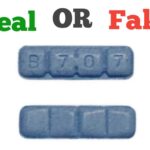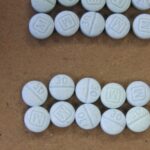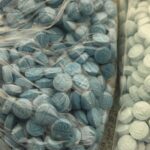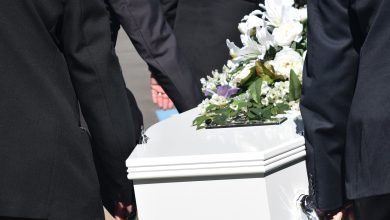How A Fake B707 Xanax Killed My Son

Liliana’s world came crashing down when her son, Carlos, fell victim to the deceptive allure of what appeared to be a harmless Xanax pill.
Carlos, a bright and ambitious young man, had been dealing with anxiety for quite some time. The pressure of his studies and the uncertainties of life led him to seek solace in prescription medications. With Algodones being a hub for those in search of affordable healthcare, it seemed like a convenient option for Carlos to purchase his medication.
The town, teeming with bustling crowds of American visitors, presented a facade of hospitality and convenience. Little did anyone suspect that the cartel had woven its sinister web into the very fabric of the city’s legitimate medication distribution chain. Unbeknownst to many, a parallel market of fake medications thrived, fueled by the desperation of those seeking relief and the greed of those preying on them.
On that fateful day, Carlos walked into a seemingly ordinary Mexican drug store, believing he was making a routine purchase. The pharmacist, with a friendly demeanor, handed him what appeared to be a legitimate B707 blue pill. The counterfeiters had mastered the art of imitation, replicating the exact appearance of the genuine medication, making it nearly impossible to distinguish between the real and the fake.
Little did Carlos know that the pill he innocently took contained a lethal dose of fentanyl, a synthetic opioid known for its potency and deadly consequences. As the drug slowly took its toll on his unsuspecting body, Carlos’s health rapidly deteriorated. What started as an attempt to manage anxiety turned into a tragic journey towards an untimely demise.
Liliana, blissfully unaware of the danger lurking in the medications sold in Algodones, received a call that shattered her world. On the other end of the line, a voice delivered the devastating news that Carlos had collapsed and was rushed to the hospital. Panic and disbelief gripped Liliana’s heart as she hurried to the medical facility, desperately hoping that her son would pull through.
The hospital corridors echoed with the sounds of medical machinery and hushed conversations. Liliana, with tear-filled eyes, stood outside Carlos’s room, anxiously awaiting any news about his condition. The medical team, solemn-faced, informed her of the grim reality – Carlos had succumbed to the effects of the counterfeit B707 Xanax laced with fentanyl.
In the wake of Carlos’s tragic death, Liliana was thrust into a world of grief and anger. Determined to uncover the truth and seek justice for her son, she embarked on a relentless journey to expose the dangerous underbelly of the counterfeit drug trade in Algodones.
As Liliana delved deeper into her investigation, she discovered the intricate network that enabled the cartel to infiltrate the legitimate medication distribution chain. The counterfeit drugs, with their deceptive resemblance to the real ones, had claimed numerous lives before Carlos became a victim.
Liliana’s quest for justice took her to law enforcement agencies, advocacy groups, and even the media. She became a voice for those who had suffered in silence, victims of a clandestine industry that thrived on deception and greed. Through her efforts, the true extent of the problem in Algodones began to surface, prompting authorities to take action against the drug cartels operating within the town.
The fight against counterfeit medications became Liliana’s life mission. She tirelessly worked to raise awareness about the dangers that lurked in the seemingly innocuous pills sold in Algodones. Her advocacy brought attention to the need for stricter regulations and enhanced security measures to protect unsuspecting individuals seeking affordable healthcare across the border.
In the aftermath of tragedy, Liliana found a sense of purpose. While she couldn’t bring Carlos back, she channeled her grief into a force for change. The story of Carlos’s death and the subsequent revelations about the infiltration of fake medications served as a wake-up call for many, prompting a reevaluation of the risks associated with seeking healthcare in border towns like Algodones.
As Liliana continued her fight, she hoped that her efforts would spare other families from the heartbreak she had endured. The memory of her son, lost to the insidious web of counterfeit drugs, fueled her determination to bring about lasting change and ensure that no one else would fall victim to the deadly deception that had claimed Carlos’s life.
In the year 2021, the Drug Enforcement Administration (DEA) confiscated over 20.4 million counterfeit prescription pills. Earlier this year, the DEA launched a nationwide operation focused on combatting the trafficking of fake prescription pills laced with fentanyl. In a span of just over three months, the agency successfully seized 10.2 million of these counterfeit pills across all 50 states. To educate the American public about the hazards associated with fake prescription pills, the DEA has initiated the “One Pill Can Kill” campaign.
Analysis conducted by the DEA Laboratory in 2022 revealed alarming trends concerning fentanyl-laced fake prescription pills. Of the samples examined, six out of every ten now contained a potentially lethal dose of fentanyl. This represents a notable increase from the DEA’s previous announcement in 2021, where four out of ten fentanyl-laced fake prescription pills were found to have a potentially lethal dose.
Administrator Anne Milgram expressed deep concern about the escalating danger. “More than half of the fentanyl-laced fake prescription pills circulating in communities nationwide now carry a potentially deadly dose of fentanyl. This signifies a significant surge – from four out of ten to six out of ten – in the proportion of pills that have the potential to be fatal,” Milgram stated. She highlighted that these perilous pills are being mass-produced by the Sinaloa Cartel and the Jalisco Cartel in Mexico.
Milgram issued a stern warning to the public, emphasizing the gravity of the situation. “Never take a pill that wasn’t directly prescribed to you. Avoid taking pills from friends, and steer clear of pills purchased through social media. A single pill is hazardous, and one pill has the potential to be fatal.”
The DEA’s efforts to combat the proliferation of fake prescription pills underscore the urgency of addressing the intricate web of drug trafficking operations that threaten public health. The “One Pill Can Kill” campaign aims to inform individuals about the life-threatening risks associated with these counterfeit medications, urging them to exercise extreme caution and prioritize their safety when it comes to prescription pill consumption.
As the DEA remains vigilant in its fight against the cartels responsible for manufacturing these lethal pills, the agency encourages collaboration with the public, healthcare professionals, and law enforcement to curb the circulation of fake prescription medications. The alarming statistics serve as a call to action, emphasizing the critical need for heightened awareness, stringent measures, and collective efforts to protect individuals from the deadly consequences of counterfeit prescription pills laced with fentanyl.





